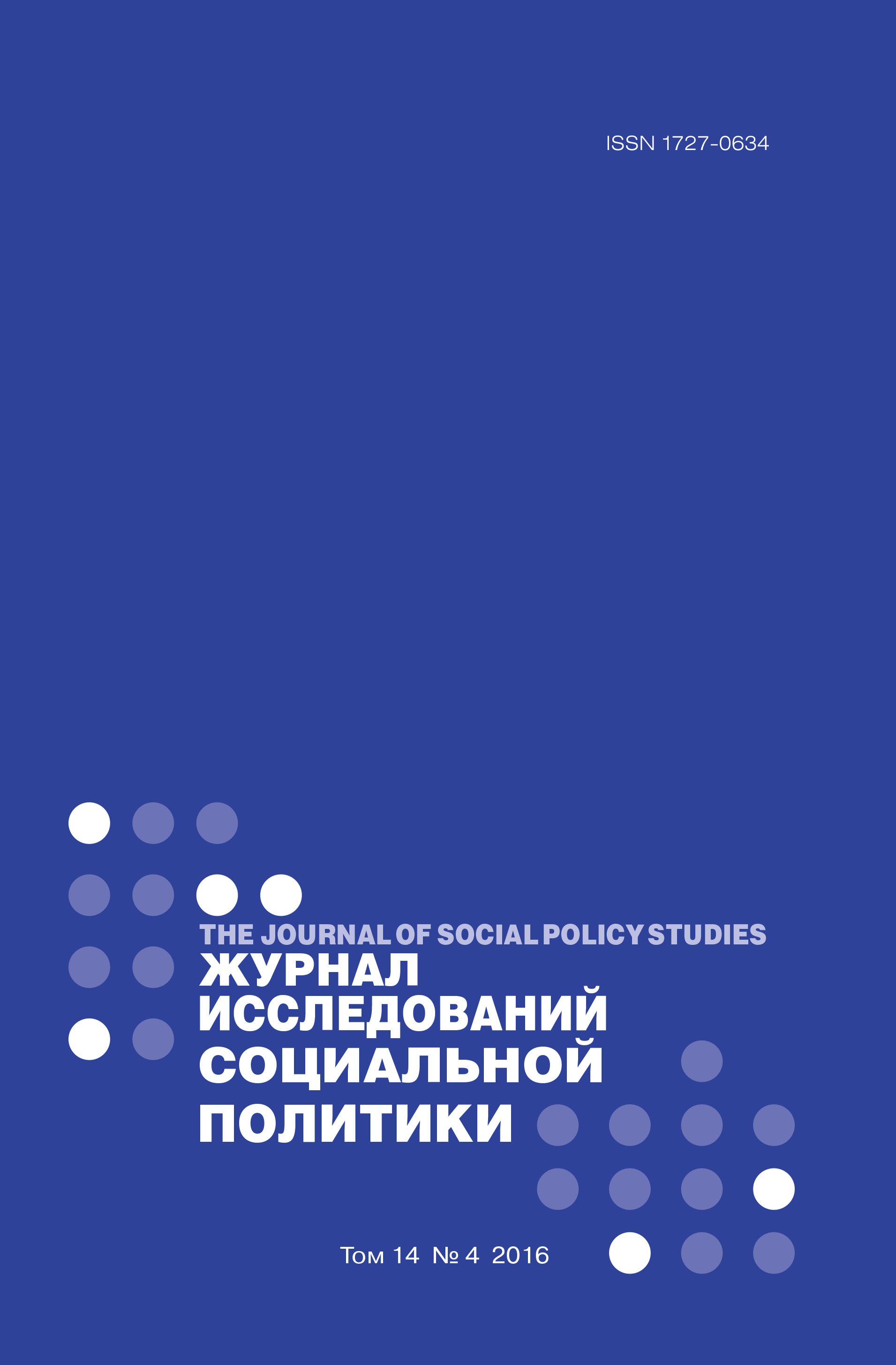Labour Relations between Employers and Working Pensioners: Care or Manipulation?
Abstract
This article considers the special characteristics of labour relations among senior workers who have reached retirement age. The pensionable age in Russia is relatively low; for women the threshold is fifty-five, for men it is sixty.. However, the average pension barely covers a subsistence level. According to official data from the Pension Fund, almost half of pensioners continue to work. The duration of work after retirement can be as long as twenty years or more. The article presents results of research into the problems experienced by working pensioners and was conducted from 2011 to 2013 by the Centre for Independent Social Research. During the project we analysed legislation regulating labour relations among working pensioners, and also carried out qualitative empirical research, which included interviews with working pensioners, employers and experts in the field of employment and protection of labour rights. This empirical base reached an extent of fifty-five interviews. The feminist concept of the ethics of care was applied as the theoretical framework for understanding and interpreting the rules governing employment relationships between pensioners and employers. According to this theoretical concept, mutual care of people is the main instrument providing social security in society. The ethics of care is based on moral order, and it is not compatible with the liberal discourse of law. In contemporary Russia, however, legislation seeks to correlate the basis for regulating working pensioner labour relations with the moral norms of intergenerational care. This article sheds light on the current situation in the Russian labour market, whose conditions remain generally unfavourable for pensioners. The jobs made available for retirees is generally unattractive, low-paid unskilled work. The general unwillingness of employers to hire the elderly forces pensioners to agree to risky compromises, which may result in violations of their labour rights. Empirical research has demonstrated that the prevailing patterns of relationships between pensioners and employers assume certain risks for both parties, which are not protected by law adequately. Thus, the relationship between the employer and the working pensioner produces a series of mutual concessions or moral dilemmas. The rules of labour relationships between employers and pensioners correspond to the norms of morality, which makes them more flexible and less predictable in comparison with the norms of the legislation. As a result, these labour relations may be converted to mutual care or mutual manipulations.















